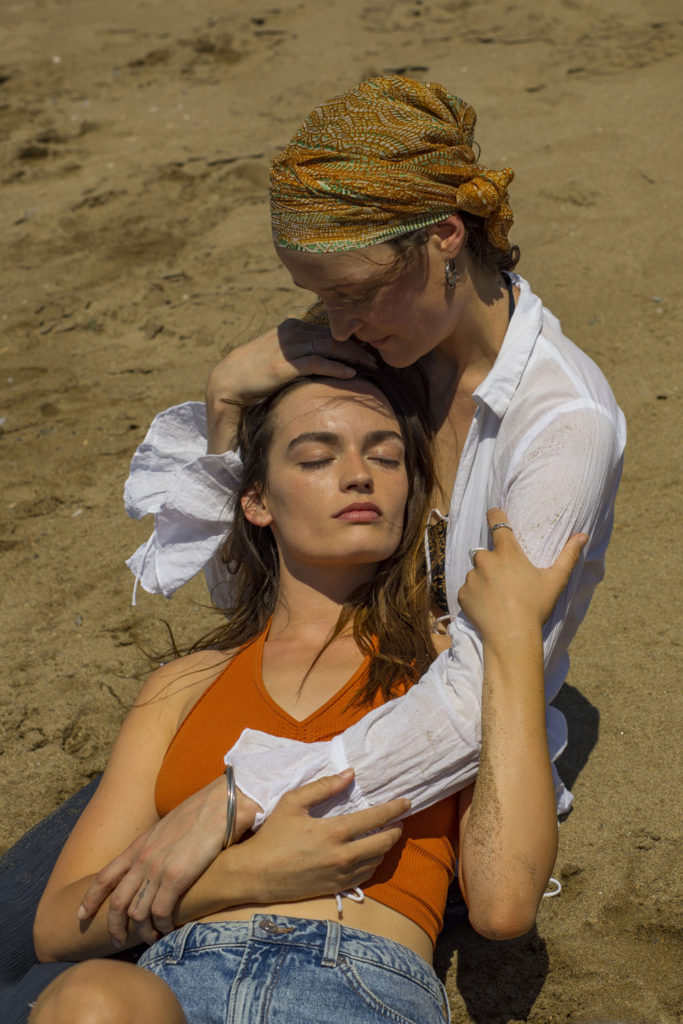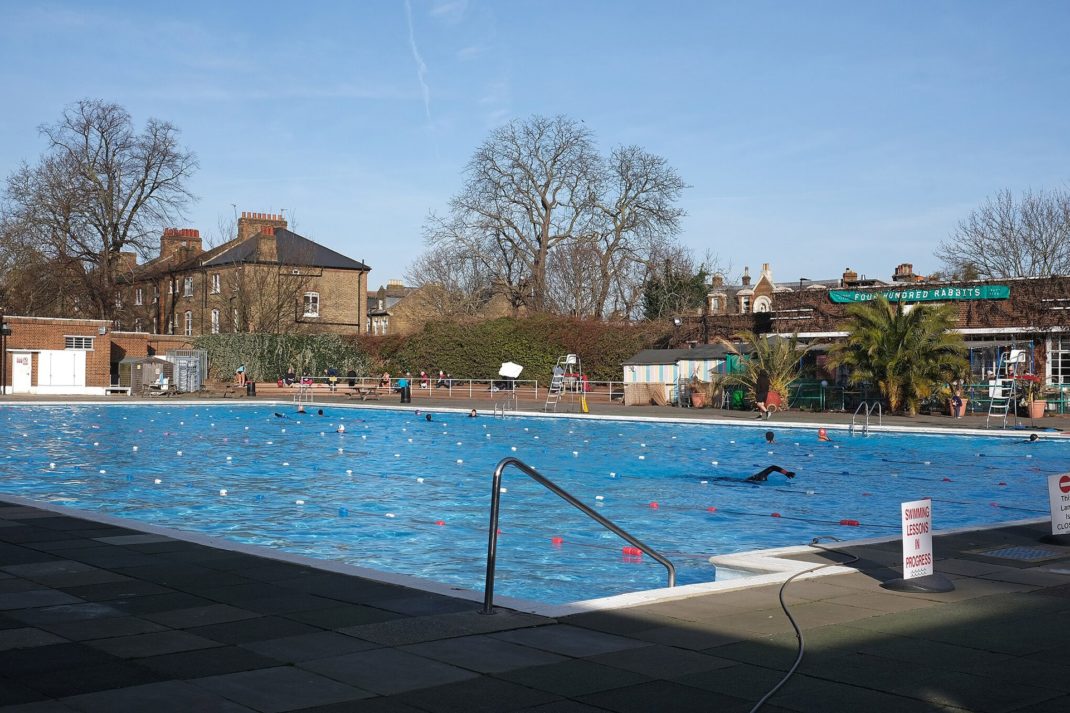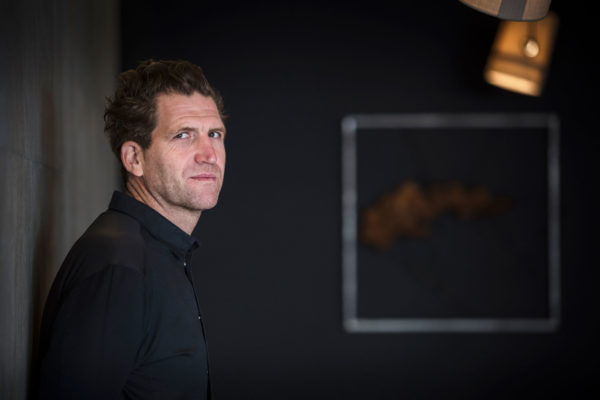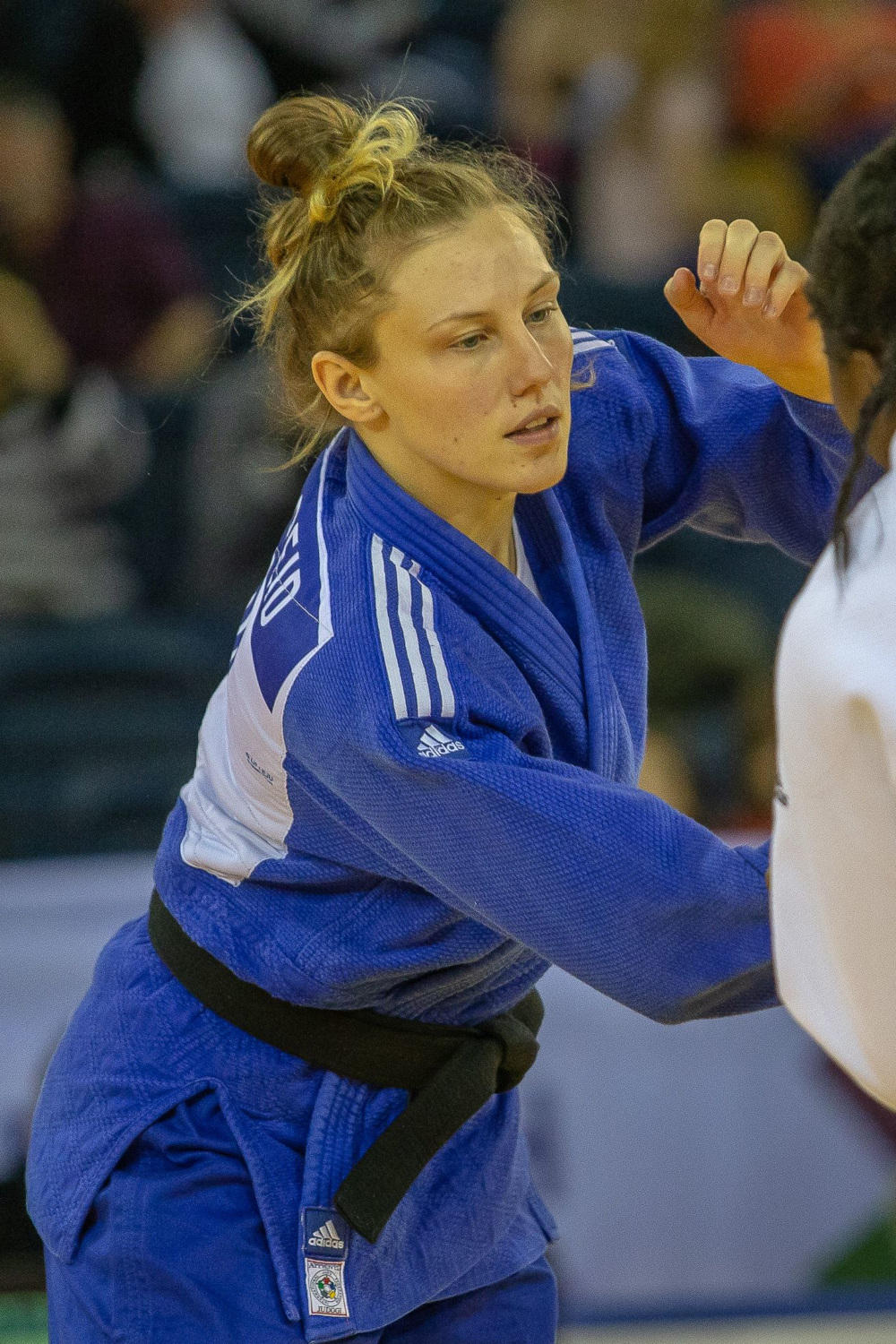
Emma Reid On Prepping For The Paris 2024 Olympics
By
12 months ago
Reid makes her Olympics debut this summer in judo
With the end of July approaching, we’re gearing up for another summer of sport with the arrival of the 33rd Olympic Games. And as Team GB pack their bags for Paris, we’re keen to get to know some of the newer faces taking to the arena. One athlete making their debut this year is 29-year-old Emma Reid. Despite only becoming a full-time judoka in 2021, Emma has quickly taken the sports world by storm – recently bagging a bronze medal at this year’s World Judo Championships and gold at the 2022 Commonwealth Games.
But it’s the Olympics that now has Emma’s full attention. ‘There are other competitions out there, but I’ve never represented Team GB before,’ she tells C&TH, ahead of the Games. ‘When representing Great Britain, you feel like you’re fighting just for judo, whereas with Team GB I feel like there’s a real emphasis on being a team. I’m excited to get to the games and see all the other athletes in their element as well.’
Ahead of her Olympic debit, we caught up with Emma talk training routines, nutrition and her family ties to judo.
Emma Reid On Her Olympic Judo Journey
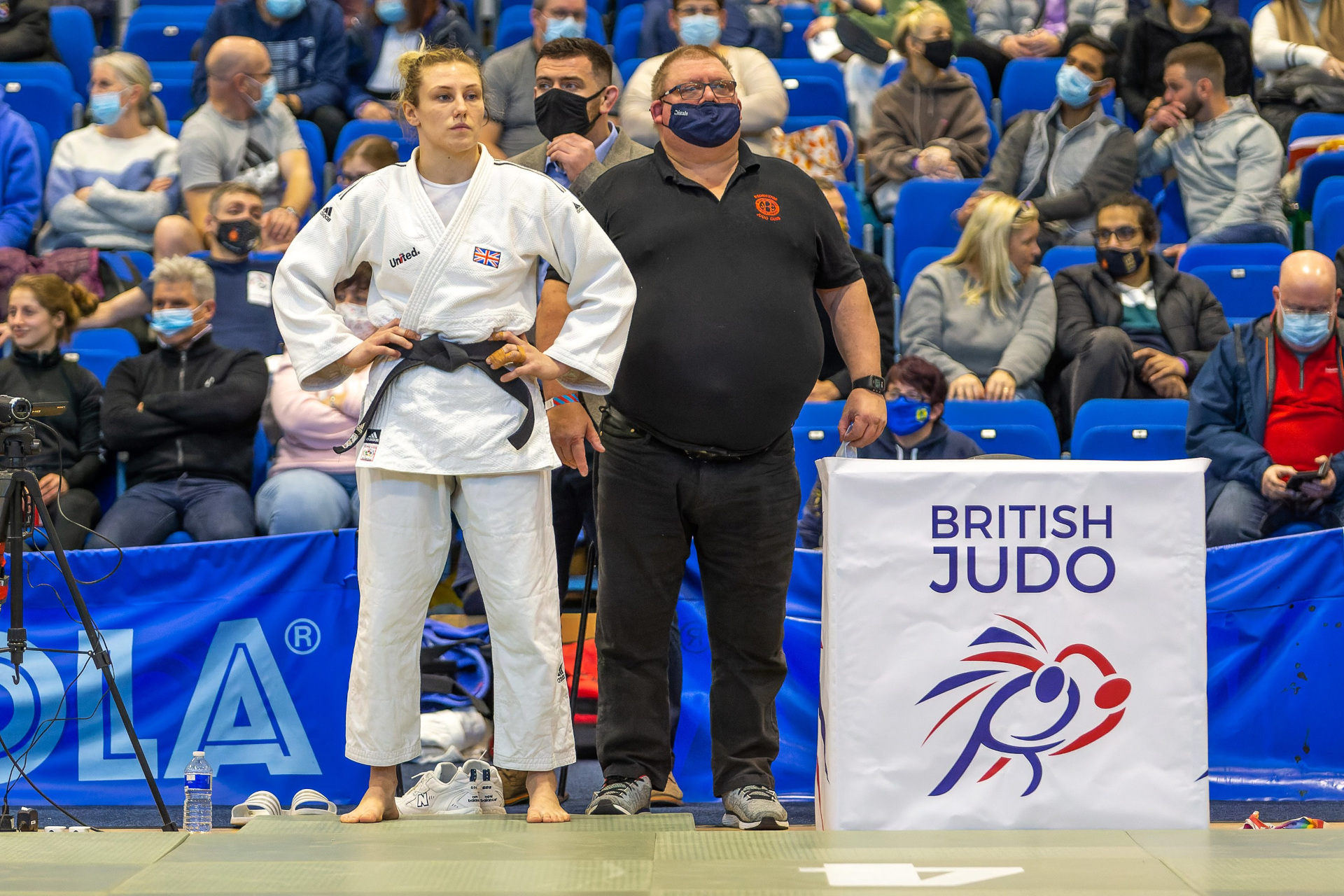
(c) British Judo Association
Hi Emma, how’s life going right now?
It’s been busy! Lots of Olympics preparations and media days at the moment.
We bet! Can you kick us off by telling us a bit about yourself and how you got into judo?
I was five years old, I think, when my mum first took me down to the local judo club that both my parents went to. I’ve been doing it ever since then, really, and just kept at it – doing the pre-cadet cadet competitions, moving through the different age groups for judo and then onto the cadet national squad, the junior national squad and so on.
I was self-funded for quite a while, until I received funding as part of the World Class Performance program at the end of 2019. This was actually given to me in 2020, which wasn’t a great time to get on because then COVID happened and I didn’t really get to go anywhere or do competitions until the back-end of the year – but here we are. That sums up the beginnings of journey, up to now.
So you only became a full-time judoka recently?
Yes, so I went to university around the time the British Judo centre opened in Coventry back in 2013. I would go to lectures and then make my way across to the Walsall Campus for training, and fit it around university life.
I finished studying in 2017, and that summer I decided to make the move and become self-funded. I was still able to train at the centre, but I was also working part-time and getting some help from grants and [laughs] the bank of mummy and daddy. British Judo were really so helpful, though. I could use all the facilities, all the tools and equipment at the centre – they even gave me a coach.
I kept thinking that I’d continue judo for another year to see if I could improve, and each year I’d get a bit closer to funding. But yeah, it took me about two and a half years to actually receive funding. It all worked out in the end.
It must have been a lot to balance work and training?
I just had to be super organised with my time. It was difficult though, because when you’re training full-time, any time you are free you should be spent resting. I didn’t have the luxury to for that, I had to go out and work. I worked in a hotel bar at first, and then I got a job in events with British Judo. That was a lot better because they understood my training schedule, and I could be a bit more flexible with my time. It progressively got better.
View this post on Instagram
And how are Olympics preparations going?
We’ve just gotten to the halfway point, between finding out I was picked to compete and the Games. We recently went away to a training camp in Benidorm, which was like an Olympic training camp – but now I think we’re starting to taper off a bit, do the last few bits here at Walsall.
I go out on 24 July, but I don’t fight until 1 August. I’m the last one in our judo group to fight, so I’ve got a bit longer to prepare out there. But we’ve got the coaches and we’ve come up with a plan that will best replicate how we normally would go into the competition. It feels a lot like it does for other competitions, so hopefully it doesn’t feel too daunting when I get out there.
This is your Olympics debut, too. How did you feel when you found out you were going to be part of Team GB?
Just a huge sense of pride and accomplishment. There are other competitions out there, but I’ve never represented Team GB before. When representing Great Britain, you feel like you’re fighting just for judo, whereas with Team GB I feel like there’s a real emphasis on being a team. I’m excited to get to the games and see all the other athletes in their element as well.
What does a day in the life look like for you right now, with pre-Games preparations underway?
So, at the moment, I’m still doing training five days a week, doing two sessions a day. That’s what my training programme looks like for the next few weeks, and then when we go to Paris it’ll start to change a bit; we’ll continue with two sessions each day, and then gradually the training periods will get smaller as we get closer to match days, so that they resemble short, sharp sessions.
But it varies. For example, today we had a media day with no training, and then we’ve got three days of training followed by a few days off. It’s all a bit all over the place at the moment, because we’re trying to get the best training schedule for the right times. This Sunday the England squad are coming in, so there will be more partners for us to train with, too. It’s all thought out by our coaching staff, so that we can get enough rest while also going hard on training.
There must be a lot that goes into balancing between training and rest?
I find it the hardest thing to deal with, because I always feel like I need to do more. So I’ll get a plan from British Judo coaches which details when I should be doing sessions, but afterwards I’d always just think, ‘I’ll go for a run tonight’ or ‘I’ll just go swimming’ or something like that, just to do something a little extra. When most people come home from work they’ll do these things to switch off or relax – but I’m doing these things during the day as well, so I’m often left trying to think of other ways I can unwind. But as long as I’m not going overboard and burning myself out, then it’s fine. But the balance is definitely the hardest thing.
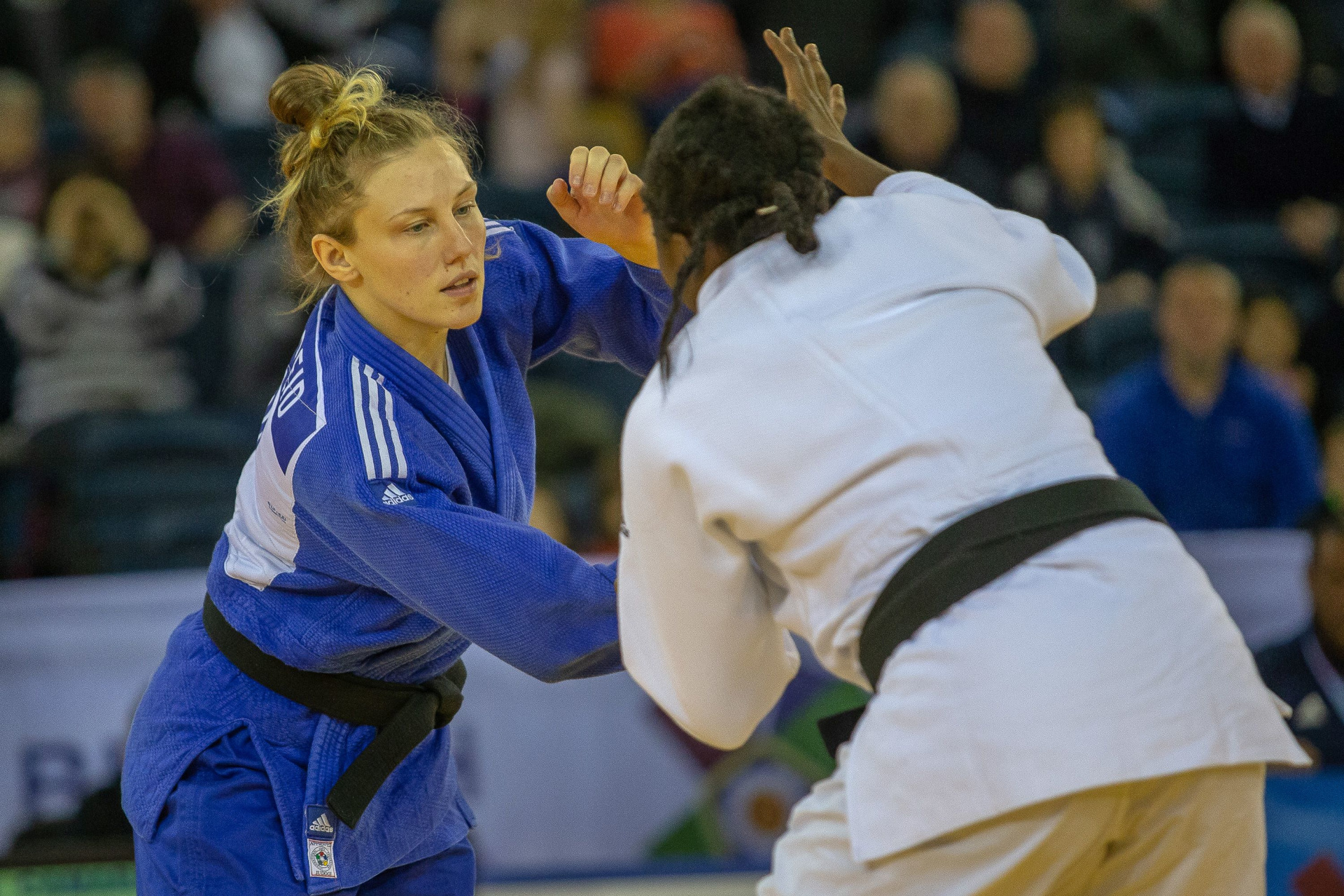
(c) British Judo Association
We’re all a bit curious how Olympians keep themselves fuelled from a nutrition aspect. Do you have a meal plan, or any go-to foods, while training?
Even though I’m in a weight class sport, I’m quite fortunate to not have to make the weight before the competition – either by cutting down or bulking up. I work with a nutritionist at British Judo to make sure I’m still eating a balanced diet, and fuelling my body at the right times. I feel like that’s what I’ve struggled with the most: what to eat and when.
I tend to have three main meals – my breakfast, lunch and dinner – and then I fill the times in between with snacks. I’m a ‘little and often’ type of person, so sometimes there might be five or six times a day that I’ll eat. It depends really on when I train. So, for example, I could have breakfast, then go to morning training, and have a recovery snack. Then I’ll have lunch, afternoon training, an afternoon snack and dinner. I’ll also have something just before bed. A lot of the day is spent training or eating.
Some of my go-to meals are pretty normal things, really, like spaghetti bolognese and chilli con carne. Pretty standard stuff, as long as it was balanced.
My nutritionist was trying to get me to eat a snack before bed, and at first I was like, ‘I don’t want to eat a snack at 9pm,’ or whatever. But I’ve gotten used to having Greek yoghurt, fruit and honey, which is easy to eat in the evening.
But it can feel like a lot. I’m in the shops a lot, constantly planning. I can’t just go into work and be like, ‘Oh yeah, I’ll have a jacket potato today,’ or something like that. You do have to plan everything, but it’s part of the experience. I do enjoy it.
And how has your network supported you throughout all your training?
I think Judo is seen as an individual sport, but throughout the years I’ve realised it’s such a team effort. You might be out there on the mat on your own, but all the training and what goes into getting you on the mat is the work of a lot of people. I get a lot of support from UK Sport, the National Lottery and British Judo; they’re like the core people that support me. And then I’ve got the coaches and support staff at British Judo, who help across loads of aspects like training and nutrition. Without them, I couldn’t imagine being able to get to the level I’m at now.
I’ve also got my family and friends. My mum and dad are really into judo, too – almost too much [laughs] – but I can talk to them and they understand what I’m talking about. My sister has also been there for me more emotionally, like she doesn’t always understand judo but she’s been there for me through the ups and downs. My friends are also really supportive; I’ll say that I lost a fight and they’ll tell me they’re still proud, which is nice. I just think it’s important to have a whole network backing you, and a good mix of people who you can pull on.
You mentioned your parents were both into judo?
They actually met at university through their judo club! They’ve now got a club they run together in Hertfordshire, called the Melbourne Judo Club.
But my mum was always a lot more competitive than my dad. She was actually selected to compete at the London 2012 Paralympics, so she’s a lot more clued up on the whole competitiveness of the sport. Unfortunately, she didn’t get to London in the end, but she experienced the whole build-up. She pulled me along to some of her training sessions, too, so I was able to see at a young age what it looked like to train for the Olympics.
View this post on Instagram
Has this experience given you a bigger opportunity to bond, do you think?
Yeah, for sure. Getting into the Olympics has been amazing for me, but I can also sense how proud my parents are. It’s like another layer of excitement. And my sister, even though she says she’s the second-favourite child [laughs], I know she’s proud of me. I think we’ve all come closer through it, and being able to talk about it. I feel like they’ve been on the journey with me the whole time.
What excites you the most about the Olympic Games?
The main goal right now is getting to the Olympics and competing, but I think actually getting there will feel very different. Going to the Commonwealth Games two years ago really gave me a taste of the games experience – albeit on a smaller scale – but it’s its own separate experience. I got the gold medal, which was amazing, but I look back and I think that the whole time was amazing. Not just that one day, but the whole week we were there. Although the actual event is important and you want to perform, I’m also just generally excited to enjoy the new experience with my teammates at the Olympic Games.
Do you have any pre-competition rituals that you like to stick to?
I don’t like to have a strict ritual or anything, because I know that the times where I’ve tried that before it’s stopped me from being able to do things that would probably help more in that moment. I just like to have a rough plan that has some things that I like to do instead.
I’ve really struggled with nerves in the past, so I’ve been working with my psychologist on things I can do to kind of block people out. I like to listen to podcasts and stuff, and then a bit later on is when I let people in, like chatting away and stuff. It’s kind of like I follow this prep tunnel of how to control the nerves, and kind of let them wash over me. Before I’d wouldn’t really let myself be nervous, whereas now I’m working on accepting them and letting them help my performance. It’s been a real roller coaster of testing things out, but I think I’ve got a good plan these days.
We’ve heard that nerves can be one of the hardest things to tame when competing.
Definitely, and I’ve noticed more and more that I hate the pressure – even if it helps. At the time, it’s horrible, but it’s afterwards I can say to myself, ‘I’ve done well, I can do it under pressure.’ Like, I can work well under pressure, but when it hits me I don’t want it. I think it’s just allowing your body to know it’s not comfortable, but to just be in that moment.
View this post on Instagram
What would a medal mean to you at the Paris 2024 Olympic Games?
Everything. Obviously you go into this experience hoping for a spot on the podium. It’ what you’re training for. It’s wouldn’t just be a big deal for me, either – it would be something for my family, my teammates, my coaching team, the programme. It would mean a lot, yeah. It would be like the icing on the cake of what has been such an amazing experience.
And what advice would you give to someone looking to get into judo for the first time?
Start by finding your local club – British Judo has a great club finder on its website that you can use. Going down and supporting your local club is just amazing, and see it all in person can give you a greater feel for the atmosphere. My local club is where I was able to learn, and it really helps develop your skills if you’re quite keen to get into judo.
And anyone can give it a go, really. I find, with judo, that there’s a bit of everything. There’s the martial arts aspect, but also more gentle physical training that helps with balance. A lot of clubs in the UK are well-equipped for young children and teenagers, as well as those who want to start a bit later. You’ll be ablet to find senior classes, too. This is a sport anyone can get into, even if it’s just recreational.
How do you live (or try to live) a life in balance?
Even though judo is my dream and what I’m passionate about, I try to treat it like work so that when I get home I can keep it separate from my downtime and switch off. I like to do other things outside of my sport. I like to golf – my dad got me into this – and bake and, even though it’s still physical activity, I like to do park runs on a Saturday. It’s nice having a few things to draw upon.
I think living life with a balance is what I struggle with the most. I usually try to do too much. Maybe I just need to chill, but I can’t – I’m not very good at just sit down and watching TV. I don’t know if my brain’s a bit too active, and it just gets bored too quickly, but I’m always trying to do something. But I’m working on separating life stuff from judo, and I’m happy.
I think everyone definitely struggles. We want to fit so much into such a small amount of time, and so deciding what’s best for you can be hard. If it’s going to tire me out for judo then I won’t do it, but if it’s going to make me feel better in my life then I will. I think I perform best in judo when I’m happy, so getting to do things outside of my sport for a few days is really important.
Anything else our readers should know?
Judo is not often in the mainstream. So I hope they’ve enjoyed hearing a bit about a judo athlete, and that it hopefully inspires some people to check out a local club. I’m a big advocate for doing sport – any sport – recreationally or competitively, and I feel like the Olympics does get more people interested in sport. But I’m hoping more people get into judo!
How To Watch Judo At The Olympics
Olympics judo matches will be covered by various channels in the UK, including the BBC. You can catch Emma Reid in action on 1 August 2024. bbc.co.uk
Images courtesy of the British Judo Association




